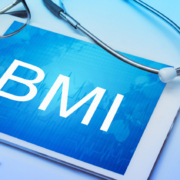Fish Oil: Reserve Judgment
Let’s put the fish oil study from Tuesday in perspective. The most important thing is that observational studies such as these cannot demonstrate cause and effect. That’s not just a way to weasel out of making definitive statements; it’s because while fish oil supplements are associated in some way with atrial fibrillation in people who have no diagnosed heart disease, it may be something else that people who take fish oil supplements do that’s actually the culprit. Remember the hazard ratio (HR) was only 13%. What were the remaining 87% doing that was different?
The Problems
As I see it, these were the problems with this research paper.
Just as in the multivitamin study, researchers collected a whole host of dietary data and didn’t use much of it; they adjusted for those who ate oily and un-oily fish, but that was it. Fruit intake, vegetable intake, fiber intake, and a whole lot more dietary factors that have been shown to limit the development of cardiovascular disease were not considered. That may have impacted the HR.
The major problem was that they didn’t report the rate of AFib in those who did not take fish oil supplements. How can you not? What happens to those who do not take fish oil supplements could have provided comparison groups, which seems like a better analysis to conduct. No explanation. They just chose not to do it.
The final critique is that this study was conceived and executed by statisticians and epidemiologists. There were no nutrition experts on the team reported in the paper. I don’t know how that’s possible. If you’re considering a nutritional intervention, such as taking a fish oil supplement, there has to be someone who understands nutrition to consider other factors. It can’t be all statistics without thoughtful guidance.
The Big Question
How? How would fish oil supplements cause the development of AFib?
Research has shown that eating oily fish does not appear to cause AFib. Why would fish oil? The researchers cited a couple of possibilities having to do with an impact on channels that control electrical pathways but overall, no one has given any explanation.
This was not the first study that has examined fish oil supplements in large studies and found some relationship with AFib; there are also several that show no relationship at all. In this case, we have to reserve judgment because we can’t prove things either way.
The Bottom Line
What should you do? First, eat the healthiest diet you can and exercise regularly, because lifestyle is more important than supplements. Second, if you have already been diagnosed with CVD as I have—a stent more than 20 years ago—taking fish oil may be beneficial. If you’re under 60, it seems taking fish oil isn’t an issue and there’s no reason to stop. If you’re older than 60, should you begin to take fish oil supplements? It’s a matter of choice. I have to reserve judgment for now.
Next Tuesday is our primary election day in Michigan, and I’m taking the day off—I’m an election worker—but you’ll still get a Memo that goes into questions on this fish oil issue. There’s more to consider and I’ll let you know what those issues are.
What are you prepared to do today?
Dr. Chet
Reference: BMJMED 2024;3:e000451.doi:10.1136/ bmjmed-2022-000451









